In The Last Jedi, Subtext Reigns Supreme
The Last Jedi has been out for a little more than a week at this point, and boy have Star Wars fans been divided. Some love it, some hate it, some are confused by it. As a Star Wars movie, it certainly isn't something we're used to, for a number of reasons. A lot of that revolves around subtext, which this movie is dripping in. That isn't something we Star Wars fans are used to – both the original and the prequel trilogy were pretty straightforward about what was happening, spelling most things out for us as we watched. That The Last Jedi would make such extensive use of subtext is a bit of a curveball, and it can leave some people thinking that plot holes and rash decisions exist where they really don't.
For the sake of discussion and discourse, I thought I'd examine the subtext surrounding some of the movie's major twists and characters. Of course, one of the problems with subtext – as with interpreting anything that isn't explicitly stated – is that it can be subjective. What I take away from some of the movie's more controversial scenes might not be what others take away, and it may not even be what director Rian Johnson was trying to communicate in the first place.
Still, I feel that those scenes tell us something deeper than what we see on the surface. Everything that happens in this movie has meaning, even if it seems that some of those scenes are out of place within the story that The Force Awakens was trying to establish. In the end, I think these underlying meanings and themes make The Last Jedi one of the best Star Wars movies to date, which is a statement I know some of you aren't going to agree with.
Warning: From here on out this article will contain major spoilers for Star Wars: The Last Jedi. Seriously, we're going to be examining major twists and characterization decisions, so don't read any further if you haven't seen the movie yet.
The Problem of Snoke
One of the major complaints you see about The Last Jedi is how it handles the character of Snoke, the Supreme Leader of the First Order. Many of these complaints revolve around the fact that Snoke was unceremoniously killed off by Kylo Ren, which doesn't make a lot of sense when we consider who Snoke was supposed to be. If we're comparing him to Emperor Palpatine, then he should be one of the most powerful beings in the universe. If that's the case, then how did a punk kid who can't control his temper manage to kill him?
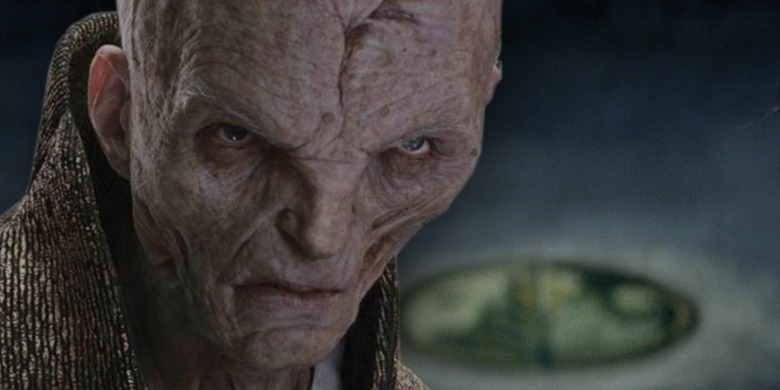
At the very beginning of the movie, Snoke and Kylo Ren have a very telling exchange. Snoke berates Kylo Ren for trying to emulate Darth Vader, telling Kylo that he isn't Vader, but rather just some kid in a mask.
What Snoke fails to realize is that Kylo Ren is more than Darth Vader ever was. Throughout the course of the original trilogy, Darth Vader had the power to seize control of the Empire for himself. He knew this all along, telling Luke in the Empire Strikes Back that the two of them could overthrow the Emperor and rule the galaxy as father and son. Even as early as The Revenge of the Sith, Anakin had it in his head that he was more powerful than the Emperor. He was right, too, as the closing moments of The Return of the Jedi lay plain.
"This isn't going to go the way you think" – Luke Skywalker
The difference between Darth Vader and Kylo Ren is that when Ren sees an opportunity to seize power for himself, he takes it. He does not need a redemption opportunity to show itself before he'll act on what he already knows. Instead, he knows that Snoke's pursuit of power has given him tunnel vision – just as it did to Anakin, and just as it did to the Emperor. Kylo Ren takes advantage of that tunnel vision and cuts him down when Snoke expects something different.
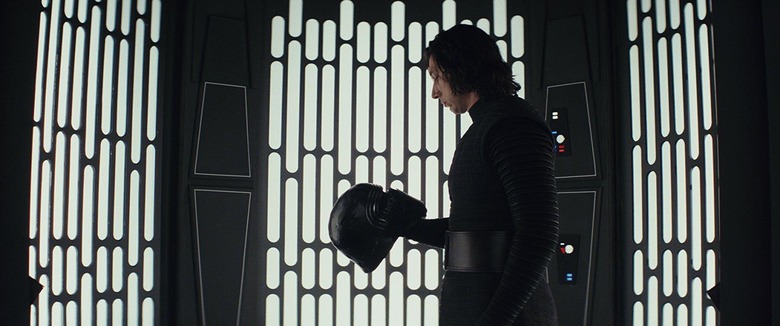
The takeaway here is that Snoke never mattered. This is Kylo Ren's story, not Snoke's, and if you were expecting a parallel with Vader, The Last Jedi shows you that this isn't going to happen. It all goes back to what Luke tells Rey during their training: "this isn't going to go the way you think." He may as well have been addressing the audience when he said that. Kylo Ren is not the sequel trilogy's Darth Vader; he is what Darth Vader should have been all along.
I do agree with those who say they would have liked more of Snoke's backstory, but The Last Jedi isn't the place for it. It think it would make for excellent extended universe material at some point in the future, but it doesn't matter right now. Snoke only serves to show us what happens to those who don't respect the power that Kylo Ren holds; who brush him off as a kid dealing with a bout of idol worship. Luke said it himself when he told Rey that Kylo Ren's power didn't scare him enough – Snoke didn't respect the power within Kylo Ren, instead viewing him as a puppet to be controlled – and he paid the ultimate price. To me, that makes Kylo Ren a much more terrifying villain that he would have been if he was still playing second fiddle to Snoke at the end of the movie.
Rey truly is no one
People are also disappointed in the reveal of Rey's ancestry. After spending all of The Force Awakens and most of The Last Jedi wondering who her parents were, Kylo Ren fianlly outs the secret in particularly biting fashion. We discover that her parents were just a couple of junkers who sold Rey off for a quick buck. Rey is no one who has no important lineage. Unlike Kylo Ren there isn't any history of Force sensitivity running through her veins, at least not that we know of.
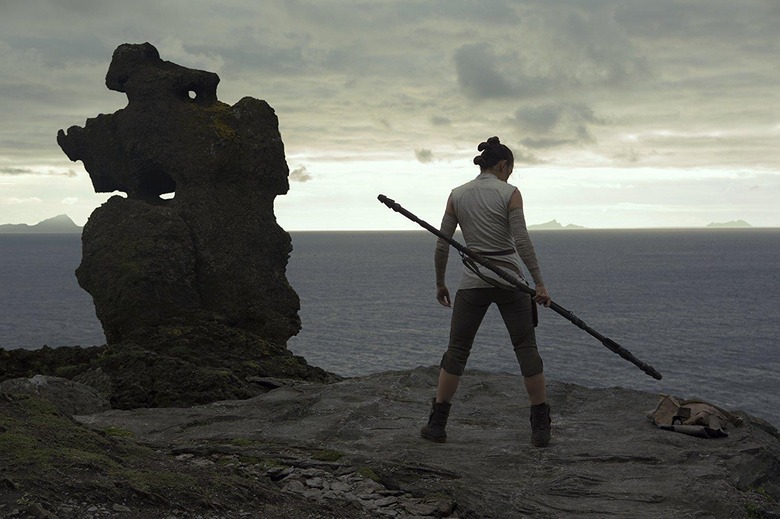
Some would argue that this is a lot of build up with little payoff, but I would disagree. Even though the original trilogy focused on someone who was almost certainly destined for great things based on his lineage alone, The Last Jedi shows us that lineage isn't everything. We are, first and foremost, a product of our actions, not a product of where we came from.
This is expressed in a scene toward the middle of the movie, when Rey dives into the Sith pit (or whatever you'd like to call it) on the Jedi temple island on Ahch-To in an effort to discover who she truly is. She gazes into the mirror there hoping to see her parents, but only sees her reflection looking back at her. She thinks that the mirror didn't give her the answers she was looking for, but in fact, it did.
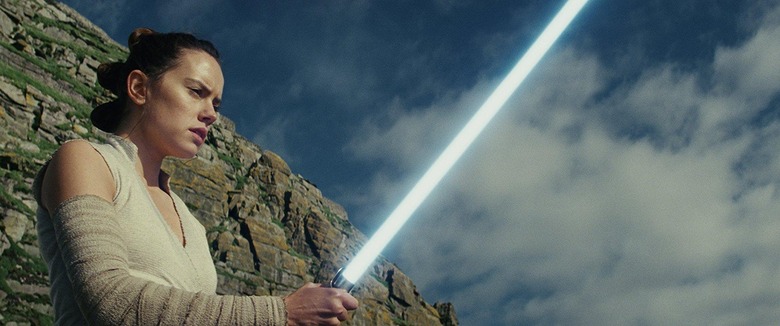
The mirror told her that the most important person in regards to her lineage is her. By simply showing her her own reflection, the mirror says that where she came from doesn't matter; the only thing that matters in regards to Rey's story is who she is in that moment, and what she will do from there.
It also suggests to us that there is no such thing as destiny, at least as far as Rey is concerned. Destiny, in general, seems to be this overblown notion in the Star Wars universe anyway. It was Anakin's destiny to bring balance to the Force, but he didn't. It was Luke's destiny to strike down Darth Vader and join the Emperor as Palpatine's new apprentice, but that didn't happen either (and whether or not that was truly his destiny instead of just Palpatine's rambling is up for debate). That Rey is approaching the coming events as a self-made hero is absolutely something to get excited about.
When Kylo Ren tells Rey that she isn't important, he completely misses the mark. Her history isn't the stuff of legends like his may be, but Rey was still chosen by the Force. There is something very special and very important about her, but that importance is not determined by her blood. In some ways, that makes Rey an even more exciting and engaging protagonist.
Luke goes crazy
For someone who has spent most of his 30 years idolizing Luke Skywalker, I have to admit that seeing the Luke of The Last Jedi was a little bit jarring. He's disillusioned with the whole good vs. evil, light vs. dark dichotomy and he's become more than a little weird during his time in exile.
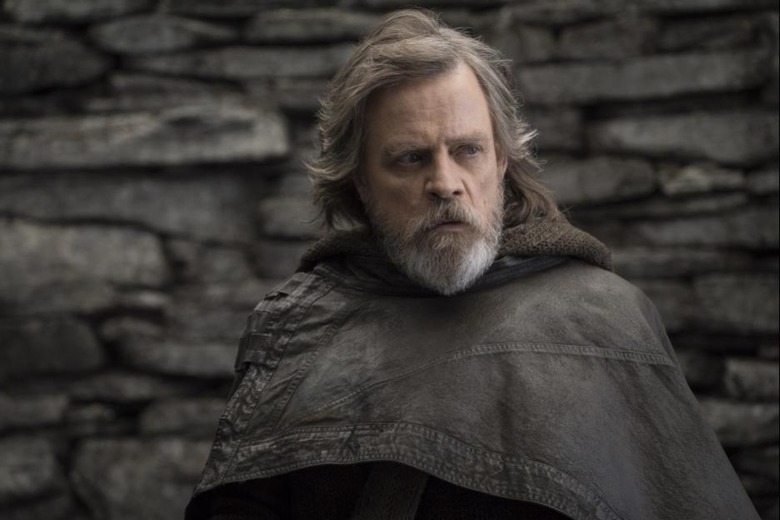
In short, he is no longer the heroic figure we remember from the end of Return of the Jedi. I can see why some fans have been upset over this characterization, but honestly, it makes a lot of sense when you consider how different Luke is compared to most of the Jedi who came before him. Luke has never been the perfect Jedi. He never had any formal Jedi training, and though he learned the ways of the Jedi under Master Yoda on Dagobah, that was a far cry from the type of training the Jedi before him underwent.
Luke has never been a paragon of the Jedi way, but more like Rey, he was a self-made hero. He didn't have the Jedi council there to help him resist the dark side of the Force – that was all his doing. Just as well, for most of his time as a Jedi and as a Hero of the Rebel Alliance, he only knew victory. Sure, there was the encounter with Darth Vader on Bespin that ended with him losing his hand and running away, but later on, he returned stronger than ever to defeat Vader and help the Rebel Alliance defeat the Galactic Empire.
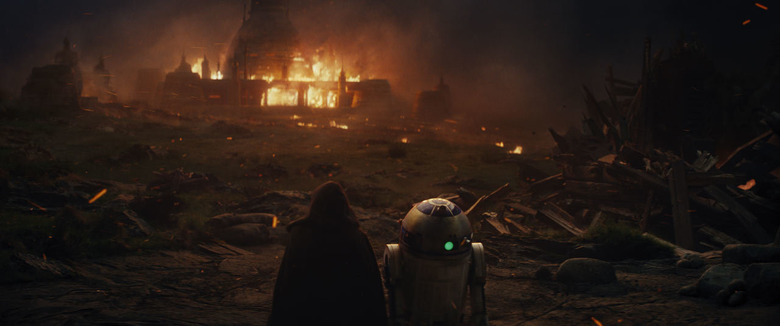
The first time Luke encountered failure that he couldn't fix was with Kylo Ren. It's no wonder he's so disillusioned. He spent most of his life believing that victory would be on his side as long as he remained true to the light side of the Force, and when the dark side took ahold of Ben Solo, he realized that wasn't the case.
Speaking of the relationship between Luke and Kylo Ren, I see a lot of people saying something to the effect of "Luke would never consider killing his nephew while he slept," but with respect, that's the entire point of that sequence. The Luke Skywalker who is one with the Light side would never consider that, but the fact that he did – even just momentarily – shows us that he is not a perfect person. What's more, the movie also tells us that this was merely a moment of weakness; no sooner did he have his lightsaber ready to strike that he realized striking down Ben Solo wasn't the answer, no matter how much darkness he saw within him.
Rian Johnson could make an entire movie focusing on Luke's struggles with the past and what that means with his character in the present moment. What's clear is that Luke is not this always right, always good character many of us believed him to be. Like everyone else, Luke is a flawed person, no more immune from failure and, by extension, self-doubt than any of the rest of us. That he would lose faith in his role as a Jedi at some point is not only expected, but necessary if he's to be something more than a two-dimensional character.
Kill the past if you have to
At a certain point in the movie, Kylo Ren tells Rey to forget the past, and kill it if she has to. This single line can be applied to pretty much everything we've discussed here. To Kylo Ren, Snoke represents that past he wants to kill so badly. Snoke represents both the old Galactic Empire and the way the Sith have operated up until this point. He is the single Emperor, and the single master to Kylo Ren's apprentice. By killing Snoke, Kylo Ren is doing away with the past – he is rejecting both this notion that the First Order needs to emulate the Galactic Empire and the rule that is at the center of how the Sith operate.
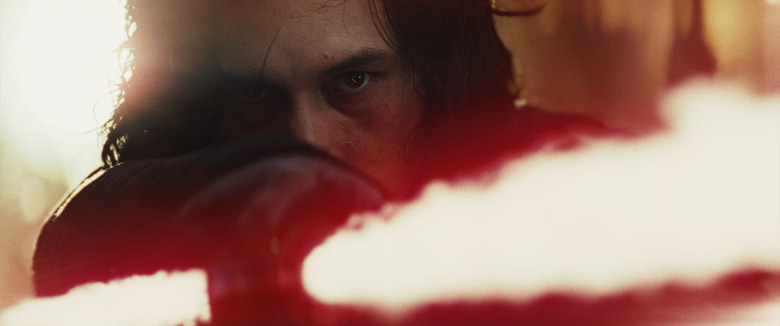
In regards to Rey, we realize that her past doesn't matter. She is not Luke Skywalker, who is defined so much by who his father is. Rey, for all intents and purposes, has no backstory, and it isn't until she breaks free of the shackles that are her unknown past that she will be able to come into her own as a Jedi and a hero. Once she realizes that she is the only thing standing in the way of achieving greatness, she will find the power she needs to become the hero we assume she will be.
For much of the movie, we see Luke trying to come to terms with his past. His failure in trying to train a new generation of Jedi still haunts him to this day, as do the shortcomings of the Jedi in general. For someone who used to believe that the Jedi were the ultimate force for good in the galaxy, these failures and realizations have to be jarring for him. By the end of the movie, however, we see that he has learned to live with those, and as a result, he's truly ready to become one with the Force.
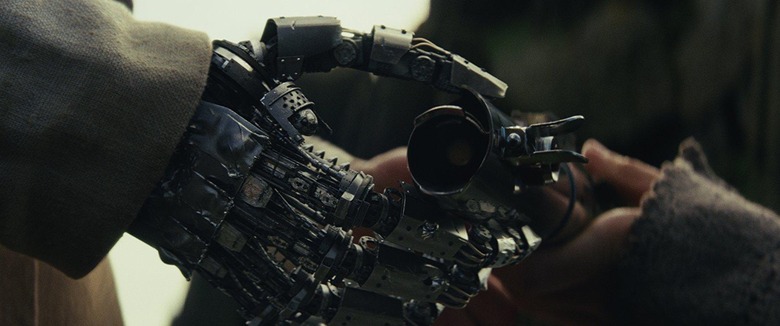
Most importantly, though, is the requirement that we in the audience let go of the past. The movie spends a long time focusing on the pitfalls of hero worship, noting that while legends can inspire and motivate, we can't expect those legends to act as a deus ex machina and routinely save the day.
Luke Skywalker can't be the savior of the Resistance and Kylo Ren can't be the second coming of Darth Vader. Snoke isn't Palpatine and Rey isn't a hero simply because her lineage and destiny demand it. To expect as much is to expect Star Wars to never to change. To accept that it to open the door to some much needed evolution for the Star Wars series.
